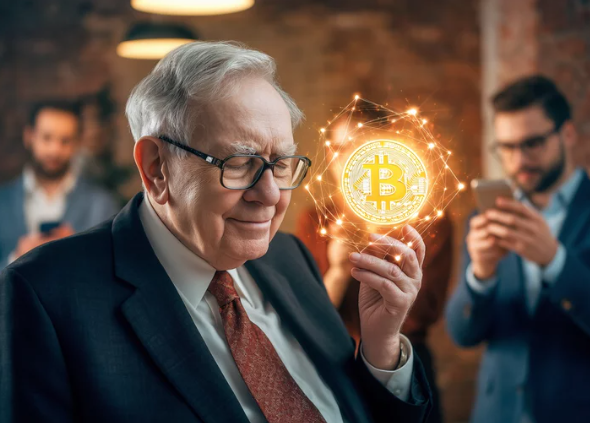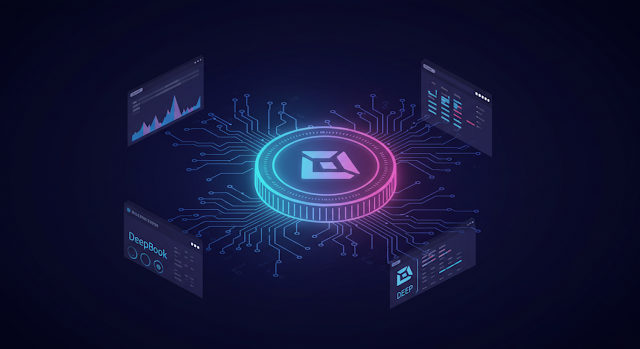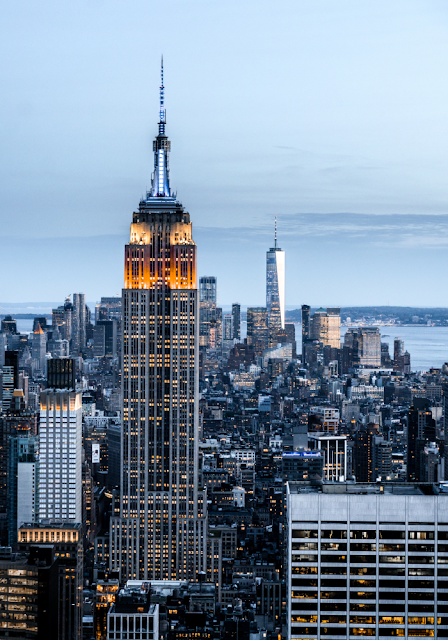It’s a question that pops up all the time in crypto circles: If Bitcoin is such a revolutionary asset, why haven’t the wealthiest people on the planet, titans of industry like Warren Buffett, bought it all up? I mean, we’ve all heard Buffett’s infamous dismissal of Bitcoin as “probably rat poison squared.”
For a long time, this apparent contradiction really made me think. Are we, the everyday investors and tech enthusiasts, seeing something that a genius like the Oracle of Omaha is missing? Or is it the other way around? After diving deep into his arguments and the fundamental nature of Bitcoin, I’ve come to believe it’s not about who is smarter. It’s about operating from two completely different financial universes.
In this post, I want to unpack exactly what Buffett and other old-guard billionaires are missing. It’s a fundamental misunderstanding of what Bitcoin is and, more importantly, what it’s supposed to do.

The Oracle of Omaha’s Take: Why Buffett Thinks Bitcoin is Worthless
To understand why Buffett is so dismissive, you have to understand his entire investment philosophy, which has made him fabulously wealthy. He buys productive assets. It’s that simple.
When Buffett buys a stock, he’s buying a piece of a business. When he buys a farm, he’s buying land that produces crops. He explained it himself: you buy a farm, and every year it produces corn and soybeans. You get income from what the asset creates. At the end of the day, you have both the income and the farm itself. The asset does something.
From this viewpoint, Bitcoin does nothing. It just sits there. As he put it, “they’re not going to multiply… they’re just going to sit there.” To him, its value depends entirely on the hope that the “next person is going to pay you more.” This is what finance folks call the “Greater Fool Theory.” In his world, that’s speculation, not investing. And honestly, from his perspective, he’s not wrong.
A Category Error: Comparing Bitcoin to a Farm is Like Comparing an Apple to an Engine
Here’s the crux of the issue: Buffett is making a category error. He’s analyzing Bitcoin as if it’s trying to be a business, a stock, or a farm. But it’s not. Bitcoin isn’t competing with productive assets; it’s competing with money itself.
Think about it. What do you use to buy that farm or that business? You use money, likely U.S. dollars. Does the dollar bill in your wallet produce anything? No. It just sits there, too. Its entire function is to be a medium of exchange, a unit of account, and a store of value so you can transact and save.
💡 Money vs. Asset: The Core Difference
An asset (like a stock or real estate) is expected to generate cash flow or appreciate because of its utility or productive capacity. Money’s job is to be a stable and reliable ledger for value, facilitating the trade of those assets. Bitcoin aims to separate these two concepts again.
Digital Gold: The Best of Both Worlds
So, if Bitcoin is competing with money, why would it be better than the U.S. dollar or its historical predecessor, gold? Because it combines the best properties of both and builds them for the internet.
The U.S. dollar is digital and portable, which is great, but its supply can be expanded infinitely by central banks. This is why your grandparents could buy a Coke for a nickel. That’s inflation, and it’s a silent tax on your savings. Gold is scarce, which is great for holding value, but it’s a pain to store, verify, and transact with. You can’t email someone a gold bar.
Bitcoin offers a third way, merging digital portability with provable scarcity.
| Property | Gold | U.S. Dollar (Fiat) | Bitcoin |
|---|---|---|---|
| Scarcity | Scarce, but new supply is found each year. | Infinite supply, created at will. | Provably finite supply of 21 million. |
| Portability | Difficult to move, heavy, requires security. | Highly portable digitally, but requires banks. | Weightless and borderless. |
| Verifiability | Requires expert testing to verify. | Relies on trusting banks. | Anyone can verify on the public ledger. |
| Censorship Resistance | Can be confiscated. | Transactions can be blocked or reversed. | Cannot be censored or confiscated (with proper custody). |
⚠️ Watch Out! The Tulip Mania Fallacy
The comparison to the Dutch Tulip Mania of the 1630s is another common but flawed critique. The tulip craze was a short-lived, localized bubble. Bitcoin has been operating globally for over 15 years, surviving multiple boom-and-bust cycles and emerging stronger each time. Tulips have an infinite supply (they’re flowers), whereas Bitcoin’s supply is mathematically capped. They aren’t in the same league.
The Long Game: Why Patience is Key
So why haven’t the billionaires bought all the Bitcoin? Because most of them, like Warren Buffett, built their fortunes in a world governed by a different set of financial rules. They are masters of the old system. Bitcoin isn’t just a new asset; it’s a new system with a new rulebook. It requires a completely different mental model—one that values decentralized verification over trusted authorities and mathematical scarcity over government-controlled monetary policy.
Instead of the 40-year retirement plan offered by the traditional stock market, Bitcoin presents a technology for storing wealth over the long term, protecting it from the silent erosion of inflation. It’s an exchange of extreme short-term volatility for the potential of long-term purchasing power preservation. It’s a long game, and one that the old guard may only understand once the game has already changed for good.
⚠️ Important Disclaimer
I am not a financial advisor. The content in this article is for informational and educational purposes only. All investment strategies and investments involve risk of loss. You should conduct your own research and consult with a qualified professional before making any financial decisions. The cryptocurrency market is highly volatile.
Key Takeaways
Buffett’s Blind Spot
Warren Buffett views Bitcoin as a non-productive asset, failing to see its role as a competing form of money, not a business.
Money vs. Asset
Bitcoin’s purpose isn’t to generate cash flow; it’s to be a scarce, decentralized, and verifiable store of value for the digital age.
Provably Scarce
Unlike fiat currencies which can be printed infinitely, Bitcoin has a fixed, verifiable supply of 21 million, making it a powerful hedge against inflation.
A Long-Term Game
Bitcoin is a savings technology, not a get-rich-quick scheme. Its path involves high volatility, requiring a long-term perspective.
Frequently Asked Questions ❓
Why is Warren Buffett so against Bitcoin?
Warren Buffett’s investment philosophy is based entirely on buying “productive assets”—things like businesses and farms that generate their own income. Since Bitcoin doesn’t produce cash flow, it falls outside his definition of a sound investment and into the category of speculation.
Is Bitcoin really just for speculation?
While many people do speculate on Bitcoin’s short-term price, its core value proposition is as a long-term store of value. Its supporters believe its provably finite supply and decentralized nature make it a superior form of savings technology compared to inflationary fiat currencies.
Can Bitcoin be compared to the Tulip Bulb craze?
This comparison is generally considered flawed. The Tulip Mania was a brief, local phenomenon involving an asset with an unlimited supply (tulips can always be grown). Bitcoin is a global, digital asset with a mathematically fixed and verifiable supply that has functioned for over a decade, surviving multiple market cycles.
Ultimately, the disagreement between the Bitcoin proponent and the Warren Buffett disciple is not a simple matter of one being right and the other wrong. It is a philosophical clash between two financial universes.
Warren Buffett is the undisputed master of the productive asset world—the universe of stocks, bonds, and real estate where value is derived from future cash flows. He operates under the assumption that a trusted government will always maintain a stable, global currency for him to conduct his business.
Bitcoin, however, exists in a new, parallel universe—a decentralized monetary system. It is a technology for wealth preservation designed for a world where trust in central authorities is eroding and where money itself is systematically devalued through inflation.
The question isn’t whether Warren Buffett should buy a digital farm. The question is whether he, or any investor, can afford to ignore a system that is fundamentally changing the nature of money, value, and scarcity for the digital age. The long-term trajectory of Bitcoin suggests the world is slowly but surely answering that question.
The old guard may eventually come around, but for the rest of us, the time to understand the new rulebook is now.




